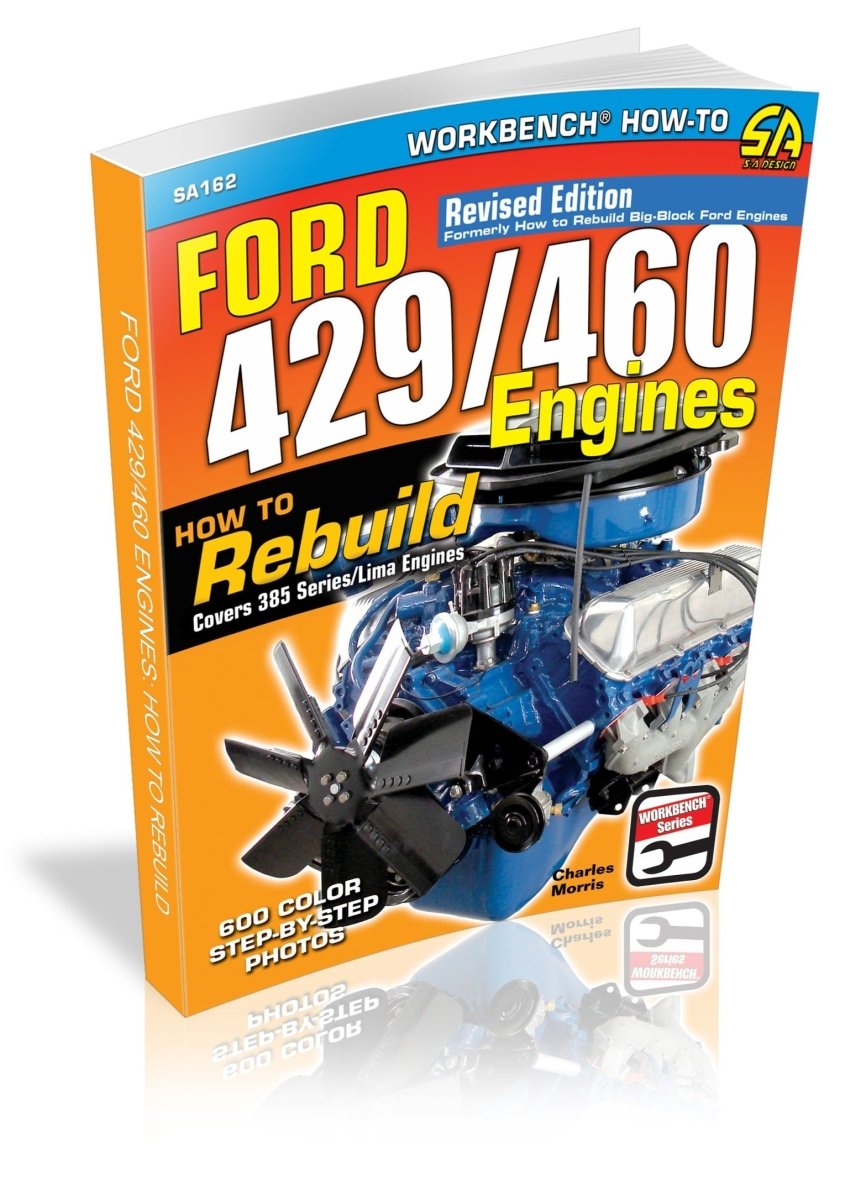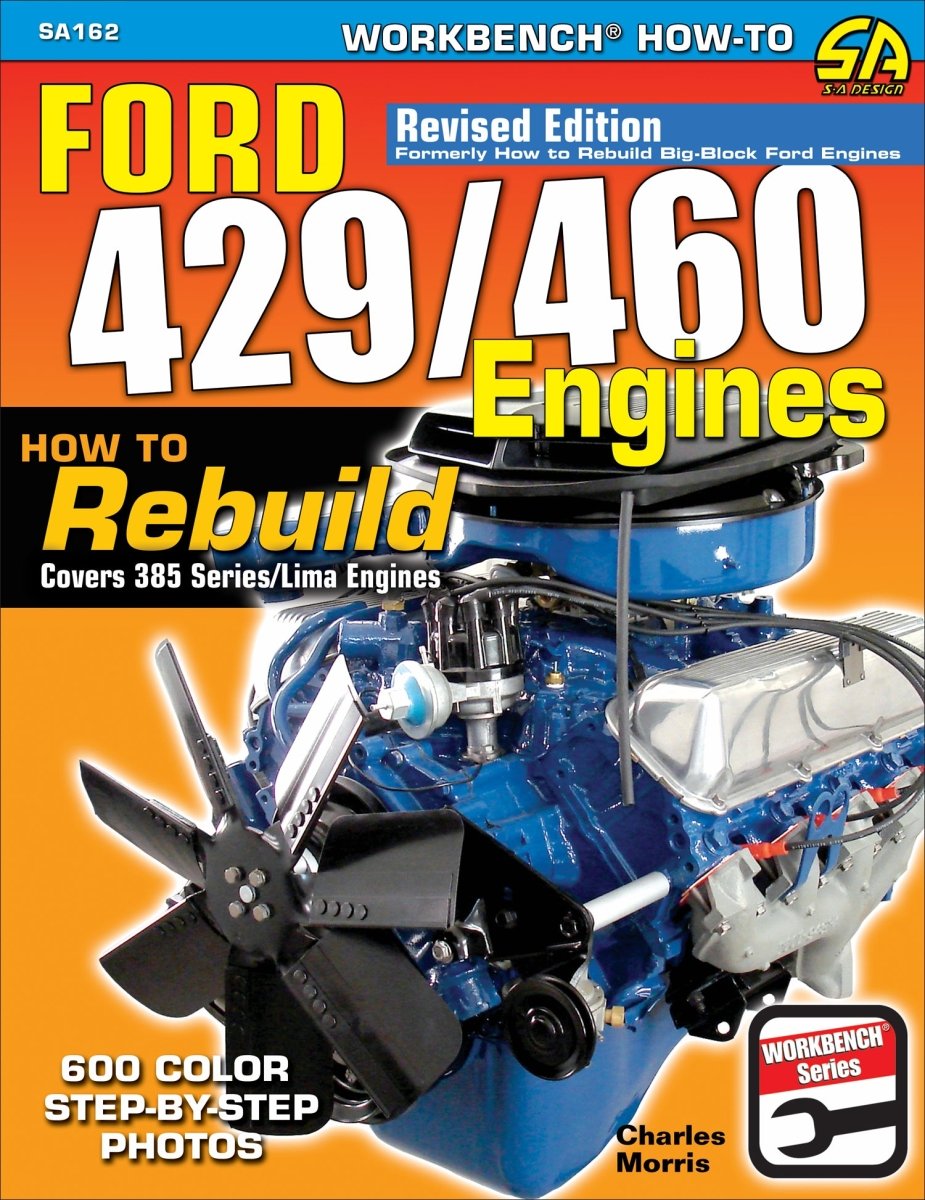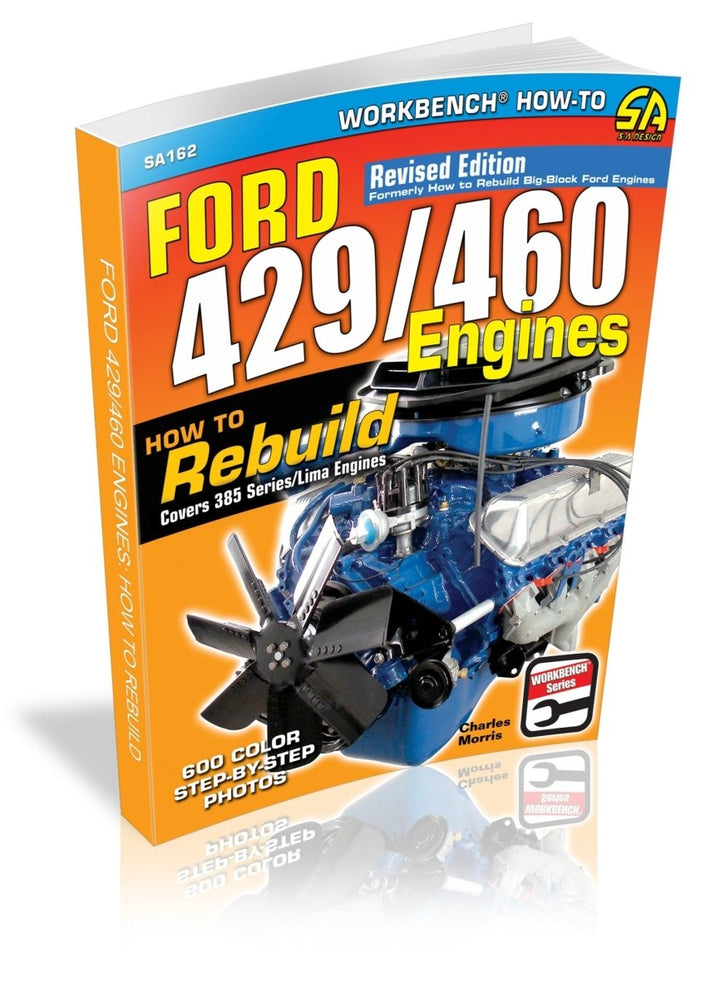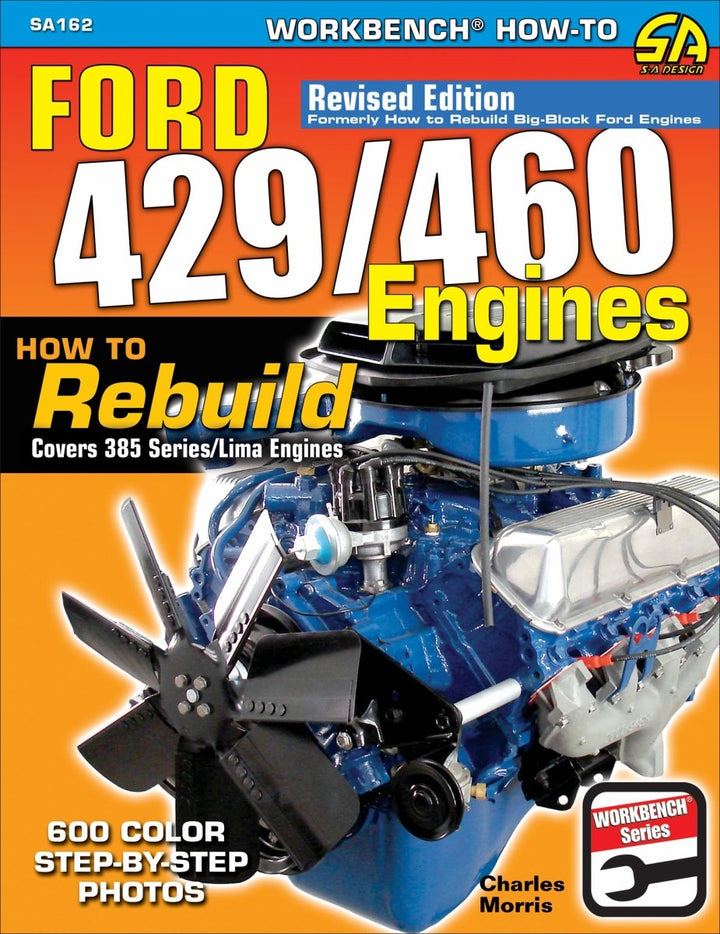Get your Ford and its 385 Series 429- or 460-ci big-block engine, also known as the Lima engine, back in action using this comprehensive rebuilding guide.
In this revised edition of How to Rebuild Big-Block Ford Engines, now titled Ford 429/460 Engines: How to Rebuild, Ford expert Charles Morris covers all the procedures, processes, and techniques required to rebuild your powerplant. Step-by-step text provides details for determining whether your engine actually needs a rebuild, preparation and removal, disassembly, inspection, cleaning, machining and parts selection, reassembly, start-up, and tuning.
Also included is a chapter on building the special Boss 429 engines, as well as a bonus chapter on the Ford 351 Cleveland, Ford’s little brother to the big-block.
Ford was unique in that it had two very different big-block engine designs during the height of the muscle car era. The original FE engine design was pioneered in the late 1950s, primarily as a more powerful replacement for the dated Y-block design. What began as a torquey engine meant to move heavyweight sedans morphed into screaming high-performance mill that won Le Mans and drag racing championships throughout the 1960s.
By the late 1960s, the FE design was dated, so Ford replaced it with the 385 series in displacements of 429 and 460 ci, which was similar to the canted-valve Cleveland design being pioneered at the same time. It didn’t share the FE pedigree of racing success, mostly due to timing, but the new design was better in almost every way; it exists via Ford Motorsports’ offerings to this day.
Beginning in 1971, the 429 found its way between the fenders of Mustangs and Torinos in high-compression 4-barrel versions called the Cobra Jet and Super Cobra Jet, and it was one of the most powerful passenger car engines that Ford had ever built. If the muscle car era had not died out shortly after the release of these powerful engines, without a doubt, the 429 performance variants would be ranked with the legendary big-blocks of all time.
If you are planning to rebuild a Ford 429 or 460 engine, are in the process of a rebuild, or just want to learn more about Ford’s storied engines, this book is a must-have item for your shelf.
Acknowledgments
What Is a Workbench Book?
Introduction
Chapter 1: Determining the Need to Rebuild Your Engine
High Mileage
Excessive Oil Consumption
Drop in Oil Pressure
Decrease in Performance
Engine Noise
Piston Slap
Bearing Noise
Diagnostic Tools and Steps
Chapter 2: Preparation and Removal
Research
Facilities
Tools Required
Machine Shop Services
Part Sources
Pulling the Engine
Chapter 3: Engine Disassembly
Chapter 4: Inspection and Parts Cleaning
Chapter 5: Machining and Parts Selection
Replacement and Performance Parts
Cylinder Block
Machining the Block
Crankshaft, Pistons, and Connecting Rods
Balancing the Rotating Assembly
Installing Pistons on Connecting Rods
Refurbishing the Cylinder Heads
Assembling the Cylinder Heads
Chapter 6: Assembly
Before You Begin
Preparing the Block for Assembly
Core and Freeze Plugs
Camshaft Installation
Main Bearing Inserts
Rear Main Oil Seal
Main Bearing Caps
Checking Crankshaft Endplay
Piston Rings
Installing the Rings onto the Pistons
Installing the Rods and Pistons
Torque the Connecting Rod Bolts
Checking Rod Side Clearance
Timing Chain and Gears
Timing Chain Cover, Vibration Damper, and Water Pump
Oil Pump and Oil Pan
Installing the Cylinder Heads
Valvetrain: Lifters, Pushrods, and Rocker Arms
Intake Manifold
Chapter 7: The Boss 429
A Little History
Three Versions and a New (Unofficial) Name
Building a Boss 429 for the 21st Century
Chapter 8: 335-Series (351-ci Cleveland)
Engines
A Little History
351M and 400
335-Series Parts Interchangeability
351 C Performance Cylinder Heads
Chapter 9: Engine Installation, Start-Up and Break-In
Installation
Start-Up
Break-In
Appendix
Source Guide





